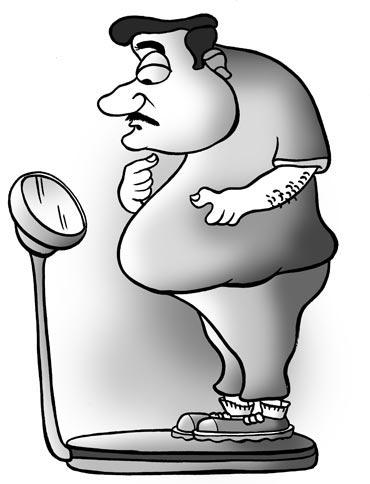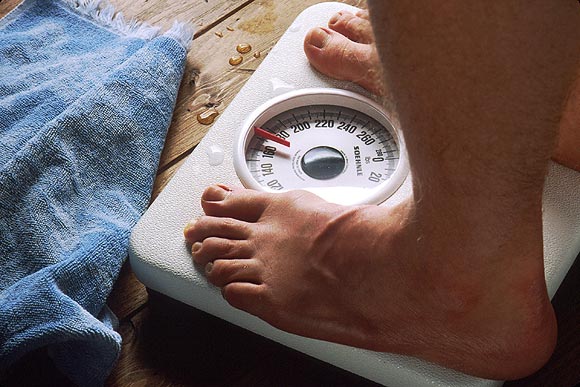 | « Back to article | Print this article |
Weight loss: Why skipping food, dieting will not help
Obesity consultant and cosmetic physician Dr Manjiri Patankar who is also the founder of Instasculpt clinics in India, Dubai and Kuwait reveals that weight loss and obesity are less to do with unhealthy eating habits and more to do with human behaviour. Illustrations by Uttam Ghosh
Weight management is a valuable part of a healthy living approach.
Today, people are more worried about obesity.
What, however, has become difficult is to determine its cause.
Obesity is by definition excess of fat storage rather than weight gain.
However, what triggers obesity is something that majority of people are clueless about.
This has lead to several myths related to obesity. Dr Manjiri Patankar clarifies some common myths here.
Myth 8: Obesity is caused from uncontrolled eating and/or an eating disorder.
Fact: Obesity is related to many factors; overeating is just one of them.
In general, people aren't really eating that much more than they used to, on average. Lack of exercise is likely a bigger culprit.
And it would be ignorant to not acknowledge that genetics, endocrine function, lifestyle, medications and metabolism all play a role in determining a person's weight.
Please click NEXT to continue reading...
Myth 7: Skipping a meal per day can help you lose weight
Fact: If you want to lose weight in a healthy way, crash dieting is not the answer.
A balanced and healthy lifestyle does make a difference for the majority of folks.
In fact, eating three meals a day may actually help stave off obesity!
Skipping meals slows down metabolism as the body is tries to reserve its energy stores for daily function.
Myth 6: People become obese and overweight because they do not engage in physical activity
Fact: It is important to remember that obesity is not always a behavioural issue.
Although physical activity and eating habits are major contributors to obesity, there are other elements to consider in evaluating the causes of obesity.
In many instances, weight loss and management efforts require a balanced combination of behavioural change and medical/scientific evaluation and intervention.
In addition, hormone disorders -- such as those related to the thyroid, adrenal glands, pituitary glands, and ovaries -- can contribute to obesity.
Myth 5: Once committed, you should lose weight as quickly as possible
Fact: Actually, weight loss -- especially fast weight loss (more than 1.5 kilograms per week) or loss of a large amount of weight -- can increase the risk of developing gallstones.
Maintaining a steady regimen of about 0.5 to 1.0 kilogram a week over time is more sustainable and less likely to cause gallstones.
Myth 4: Childhood obesity is genetic, there's nothing you can do about it
Fact: While a person's genes do influence weight, they are only one small part of the equation.
Although some children are more prone to gaining weight than others, that doesn't mean they're destined for weight problems.
Most kids can maintain a healthy weight if they eat right and exercise
Myth 3: Weight loss and fat loss mean the same
Fact: Weight loss refers to losing kilos on the scale either from muscle, fat or water, while fat loss, isn't much about the scale but about getting rid of body fat, losing inches in all the right places and looking slimmer.
Non surgical treatments are effective for fat loss and inch loss, where as diet modifications and lifestyle modifications are required for weight loss.
Myth 2: Body fat is bad
Fact: Without body fat, organs would not function properly, bones would break easier, and a person will be at risk for heart attack.
Body fat itself is not bad.
In fact, how much of it, what type, and where it is stored on the body makes a difference.
Myth 1: Exercise can make you skinny
Fact: The concept is (calories in) -- (calories out) = (stable weight).
If a person doesn't curb calorie intake, exercise can actually make more fat deposits in body.
Exercise is important for maintaining health and strength, but just don't believe that you can lose fat by exercising.
If this were true, then Sumo wrestlers would be thin!
Remember, it's the fitness, not the fatness that often matters most.






